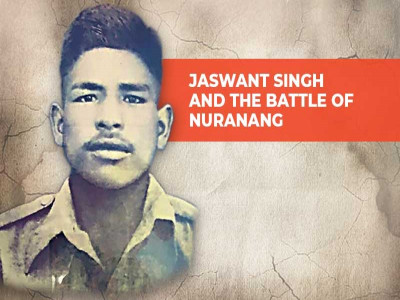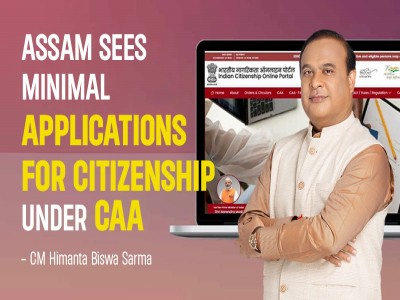
A Democratic Circle: Assam, Citizenship (Amendment) Bill & the JPC Visit
Citizenship and Assam: What’s it all About
It all started in the 60’s with the demand for the deportation of the illegal migrants in Assam and the subsequent signing of the ‘Assam Accord’ between the participants of the Assam Agitation and the representatives of the central government under the leadership of Rajiv Gandhi. For years, however, the situation didn’t change much. The influx of illegal migrants continued, the threat to the larger Assamese identity continued to be felt by the people and of course, the population statistics continued to increase.
The coming to power of the present BJP led coalition government changed the situation with the initiation of the NRC update process under the direct supervision of the Hon’ble Supreme Court of India. A modern, scientific move that has been welcomed by the people, the NRC Update process was also highly appreciated by the Supreme Court of India. The NRC Assam update sought to make a comprehensive digital record of authentic citizens of India residing in Assam, through a detailed verification of the legacy data and family tree heritage of all residents of Assam, including those people who had arrived in the state up till the midnight of 24 March, 1971.
Assam Government’s Role in the Matter
A proactive attitude has been shown by the present state government regarding the citizenship issue. Their seriousness and dedication on the matter was highlighted when the CM of Assam, Shri Sarbananda Sonowal visited the NRC office on the very first day of his assuming office. In the meanwhile, the Supreme Court has been constantly monitoring the procedure to ensure its speedy and efficient execution. Protecting the larger ethnic identity of the state and its people is a significant matter for the government. The aspirations of the Assamese people are a priority for the government and several significant matters have been brought to the forefront with the election of the BJP government.
The government’s promise to make Assam “Bidesi Mukto” (Migrants Free), “Produxon Mukto” (Pollution Free), “Bhrostachaar Mukto” (Corruption Free) and the assurance that Assam will be accorded the status of a Scheduled State as a guarantee of the protection of Assam’s identity in the future have given hope to the people and have simultaneously increased their expectations from the government.
Citizenship (Amendment) Bill, 2016
In the midst of this, the Citizenship (Amendment) Bill, 2016 has given rise to critical questions and sparked off much skepticism amongst the people.
The Citizenship (Amendment) Act, 2016, while being overwhelmingly accepted in the rest of India, stands on a fragile ground in Assam because the dynamics of our state are very different. Not only has Assam shouldered the burden of illegal migrants for decades, but it has also witnessed tremendous loss of life and property in the past because of this sensitive matter. In such a situation, passing of the Bill will bring an imbalance in the state’s demographics and will be a threat to the indigenous people whose presence will become a minority figure in comparison to that of the new arrivals I.e the Hindu Bangladeshis.
Assam and the Visit by JPC
The Assam Government invited the JPC to address these concerns and to allow the various stakeholders to voice their concerns, queries and opinions on the matter. Because they believe in the constitutional powers to arrive at a solution through discussions, the government took this step. Consequently, the Joint Parliamentary Committee has made a note of all the significant issues that have been highlighted by the various stakeholders.
Allowing the smooth execution of a constitutional process is the necessary duty of any progressive government. And the Assam government’s invitation to the JPC is an indication of their commitment to the values of democracy rather than some conspiracy to disrupt the progress of the state or threaten the security of Assam’s social harmony. The Joint Parliamentary Commission has been formed with the intention of allowing everyone a chance to present their opinions in a democratic manner and to ensure that the fundamental values of a democratic society remain intact.
Conclusion
Issues are there, debates have sparked off and questions have emerged; it’s obvious that people are looking forward to dependable solutions that will resolve their concerns rather than alleviate them. In this context, the responsibility for coming to an agreeable solution is of the government and also of the people. While speculations will always tend to emerge, the approach towards a situation will determine to a large extent what the eventual outcome is. Thus, it is necessary that people support the democratic process and avoid making hasty decisions fuelled by emotions such as anger, agitation and fear or vested interests.
In a democracy matters get resolved through discussions; and solutions emerge when rather than panicking, people get their facts straight and build awareness about issue and are willing to engage in discussions. People need to support the progressive growth of the state and its people, while also expressing their opinions. It is also necessary that people refrain from making insensitive comments that are baseless and that reflect their personal opinions rather than the collective voice of the larger Assamese society.
Disclaimer: The opinions expressed in this article are those of the author's. They do not purport to reflect the opinions or views of The Critical Script or its editor.

Newsletter!!!
Subscribe to our weekly Newsletter and stay tuned.

















Related Comments